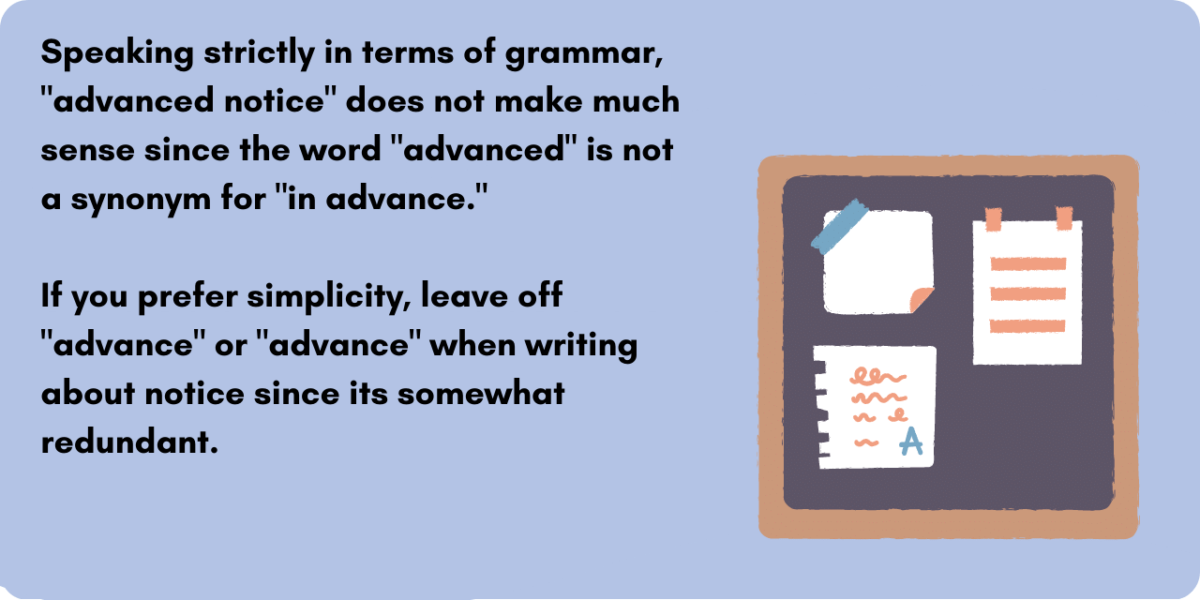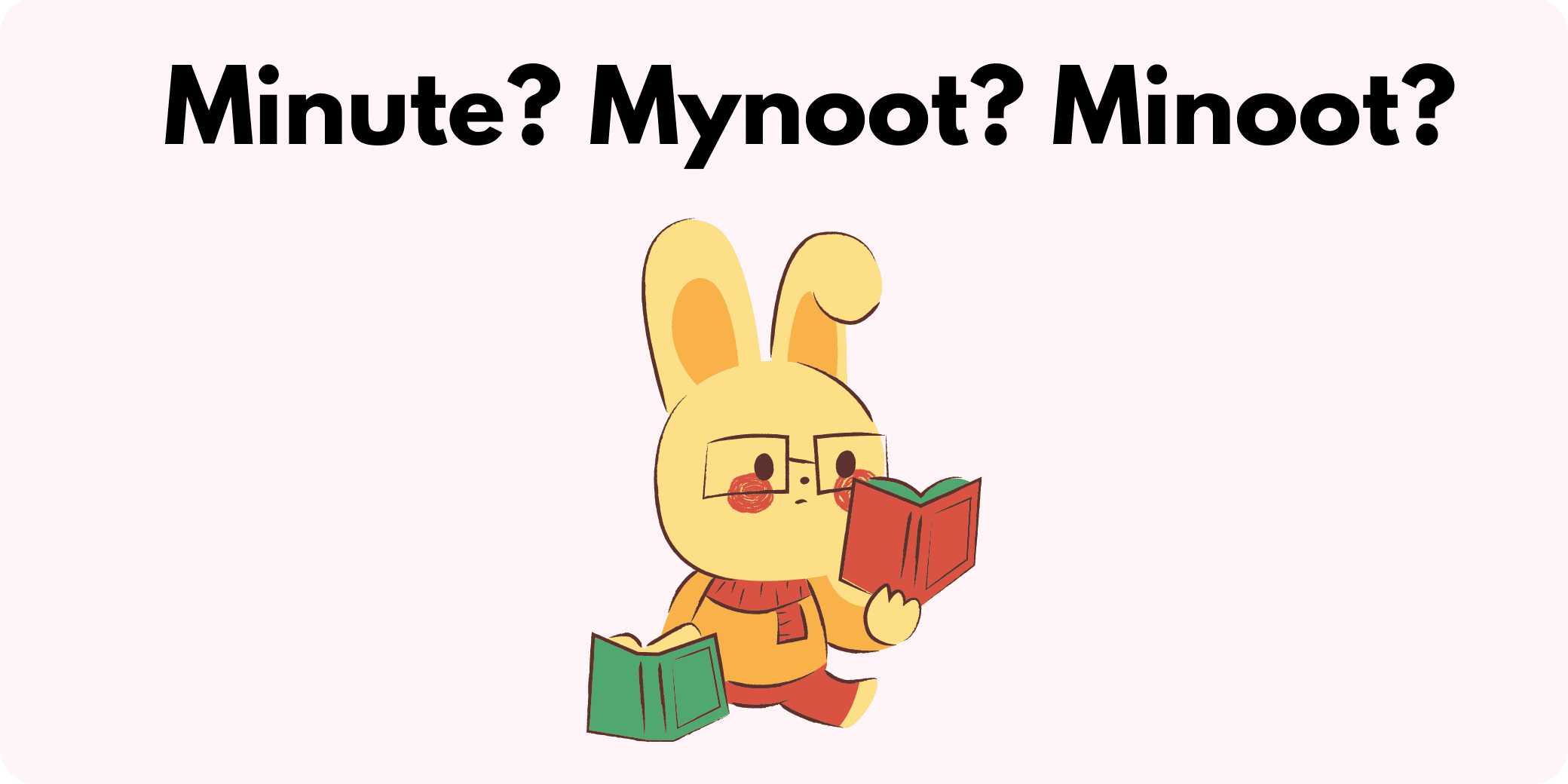Notice, by definition, is given in advance, isn’t it? If that’s true, is the expression “advance notice” redundant? Or worse, is it inaccurate? These questions need to be addressed! So here is a quick answer:
- You should feel free to use either or simply write “notice” to avoid redundancy.
Now for a deeper and more interesting dive!
Advance Notice
According to BusinessDictionary.com, advance notice alerts a future event or obligation. For instance, you might receive information regarding the due date of a bill or an arrival date of an online order. Here are some real-life illustrations of this phrase:
Of the 16 firms on that list, 13 mysteriously already had bank drafts ready to pay the nominal upfront fee, which were dated before the public announcement had been made, according to India’s Comptroller and Auditor General (CAG). It reckoned they were given advance notice. It also noted that 13 of the 16 firms made “false and fictitious” statements about their finances. – The Economist
But now, when our fingers tap our way out of social obligations, the barriers to canceling have been lowered. Not feeling up for going out? Have better plans? Just type a note on the fly (“Sorry can’t make it tonight”) and hit send. And don’t worry about giving advance notice. The later, the better. After all, bailing on dinner via text message doesn’t feel as disrespectful as standing up someone, or as embarrassing.- The New York Times
“Notice,” by itself, is defined as an announcement, information, or a warning given in advance of an occasion or event. It also refers to the notification of the end of a deal or contract.
If you remove “advance” from the quotes above, would you still get the sense of the paragraph, right? Most would think so. They find advance notice unnecessarily verbose or too wordy. DailyWritingTips.com incorporated it into their list of fifty repetitious expressions to avoid since a notice, much like a warning or a caution, by definition happens before an event. One can’t receive a notice about something after it happened! As an added bonus, here are a few more redundant phrases:
Advanced Notice
Let’s take a look once more at real-life examples from reputable media sources:
My mother felt it would be too disruptive to close the next day, when our neighbors would depend on us for their laundry and dry cleaning needs. We gave advanced notice of the closing instead. – The New York Times
The release echoes that of David Bowie’s surprise single and album announcement back in January. My Bloody Valentine put out their third album by uploading it to their website without advanced notice one Sunday morning in February. Fans of the rock band were thrilled; they had waited 22 years for it. – The Independent
As an (added) bonus, here is a source that uses both variations in the same article (granted, one is a quote):
Louise Hunt, the senior coroner for Birmingham and Solihull, told a hearing on Thursday that the new material had been sent to her office on 27 April from an undisclosed source.Hunt said it related to an allegation that the security services had advance notice.“It’s significant and does raise concerns in relation to potential advanced notice, that’s as much as I can say,” Hunt said.
– The Guardian

Advance Notice & Advanced Notice Compared
Redundancy issue aside, is there a contrast between these two phrases? As established by the examples above, you may say no. Yet, the definition of “advanced” is “highly modern, elaborate, higher than elementary level, or at a high level of progress or life.” It doesn’t seem like any of the phrases above fit with those definitions. Advanced notice can’t be an alternative way of writing the words “advance notice” because advanced is not a synonym for advance.
On the other hand, an internet search for the phrase will generate thousands of instances of the phrase in legal papers. Why? Burton’s Legal Thesaurus does recognize the term “advanced notice” as a synonym of these thirteen similar terms: announcement, publicity, forewarning, intelligence, prediction, preliminary, pronouncement, dispatch, prophecy, prospectus, publication, and warning.
The legal dictionary on Law.com doesn’t contain either phrase, but it does define notice.
Usage
The Google Ngram graph below shows that although “in advance” has been losing favour over time, it is still the most commonly used variation:
The Takeaway
Speaking strictly in terms of grammar, “advanced notice” does not make much sense since the word “advanced” is not a synonym for “in advance.” However, some sources do use it in this way, including Burton’s Legal Thesaurus.
You should feel free to use either variations. However, if you prefer simplicity, leave off “advance” or “advance” when writing about notice since its somewhat redundant.
Further reading: “Thank you in advance”






